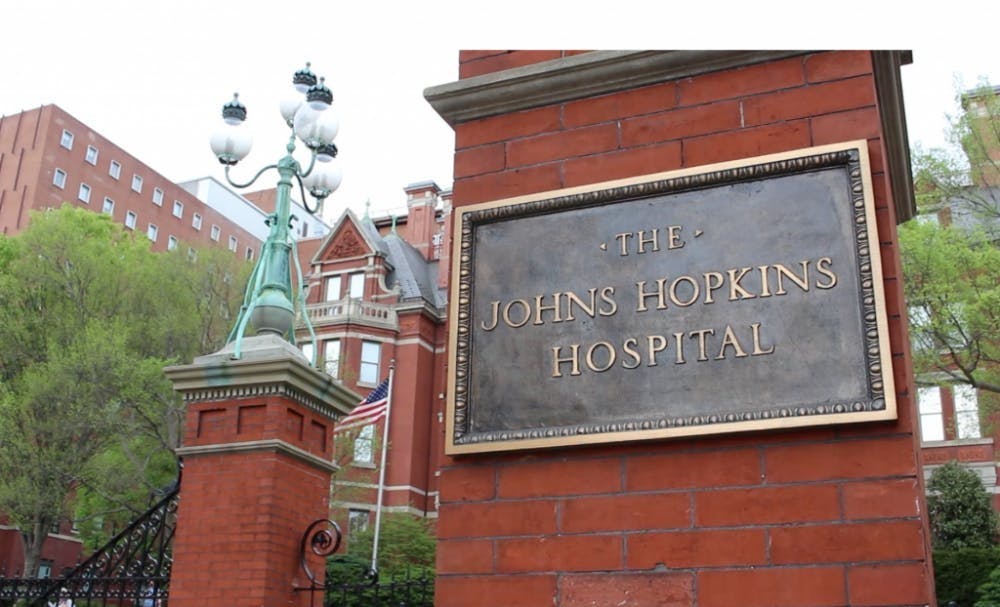As the number of coronavirus (COVID-19) cases surge, so do treatment options. A new solution proposed by Dr. Arturo Casadevall, an immunologist at the Hopkins School of Medicine, has recently moved into clinical trials after fast-track approval from the U.S. Food and Drug Administration (FDA).
The treatment aims to use blood serum from recovered patients of COVID-19 to help prevent and treat COVID-19 infection in others. Blood plasma from those who already experienced the infection contains antibodies for the virus, which help the patient’s immune system target and fight pathogenic agents. Antibodies are an important part of the body’s immune response.
Dr. Evan Bloch, an associate professor of immunology at the Hopkins School of Medicine who is facilitating the on-going clinical trial, explained in an interview with The News-Letter why convalescent plasma therapy is a promising treatment option for COVID-19.
“By collecting plasma from individuals and transfusing it into those who are either at the risk of being exposed or are actively infected, the thinking is that there is a direct neutralizing effect [against the virus],” Bloch said.
Convalescent plasma treatments are backed by past success for other infectious diseases. According to the paper published by Casadevall, the practice has been in use since the early 20th century for measles and mumps. Casadevall also noted that antibody treatment proved its value during the recent outbreak of SARS in 2003 and MERS in 2012. University President Ronald J. Daniels commented on the work of the Hopkins researchers working to develop this treatment.
"[Casadevall] and his partners' work reflects Johns Hopkins' abiding commitment to collaboration and discovery that serves humanity,” Daniels said to The Hub. “We are grateful for the FDA's swift support for this life-saving work and the promise it holds for so many, particularly our frontline healthcare workers, in this extraordinary time."
Currently, there are multiple clinical trials revolving around the use of convalescent plasma to treat COVID-19. These trials aim to investigate its efficacy in different stages of infection, from prevention all the way to the intensive care unit (ICU).
Dr. Shmuel Shoham, principal investigator of the nationwide clinical trial of preventative convalescent plasma treatment for COVID-19, noted three benefits of these treatments in an interview with The News-Letter.
“If an individual has been exposed, and if it works, it can reduce their own personal chance of having an infection or a complication. The other benefit is societal — if they are not infected, they are less likely to be contagious,” Shoham said. “The third advantage is if they are not infected, they are less likely to be in a hospital, tying up medical resources.”
For the ICU stage of the investigation on antibody treatment, the FDA has an expanded-access program in partnership with the Mayo Clinic. This program allows patients in life-threatening conditions to receive investigational medicinal products as treatment when no other acceptable or similar therapeutic option is available.
Currently, physicians can apply to the FDA for the emergency use of convalescent plasma for critically ill patients suffering from COVID-19. The swift approval of the clinical trials and the implementation of the expanded access programs, however, has raised eyebrows from many who are concerned about the safety of the treatment.
Shoham acknowledged the potential risks involved with the treatment, which include the hazards of intravenous injection, the potential to transmit infection to patients and the possibility of an allergic reaction to the foreign blood product. However, he noted that these risks are apparent in other common procedures.
“Blood transfusions are given thousands and thousands of times each day in the U.S. and they are very very safe, but nothing is completely 100 percent,” Shoham said.
Bloch also explained that much of the concern surrounding complications is based on theoretical risks rather than practical ones.
“The risk of infection in the U.S. is very low. There is robust testing for [human immunodeficiency virus], Hepatitis B, Hepatitis C... It’s not really a big concern,” Bloch said.
As the number of recovered patients increases, antibody-rich blood serum will become more accessible. The FDA has coordinated with the American Red Cross to collect and transport donated plasma from recovered COVID-19 patients.
Despite showing promise in the fight against COVID-19, Shoham noted that convalescent plasma therapy is not a long-term solution for the pandemic.
“Plasma is purely a bridge to somewhere, it isn't the final answer to protection against coronavirus,” Shoham said. “You get it and it’s going to be in your body for a few weeks, and it’s going to go away. Your risk will probably return if you become exposed to somebody [who is infected].”
Bloch explained that the ultimate answer lies in the development of a vaccine for COVID-19.
“[Convalescent plasma] is a temporary measure until you can get a long term option. Vaccines are the ideal, [but] we are probably still months away from accessing them,” he said.





